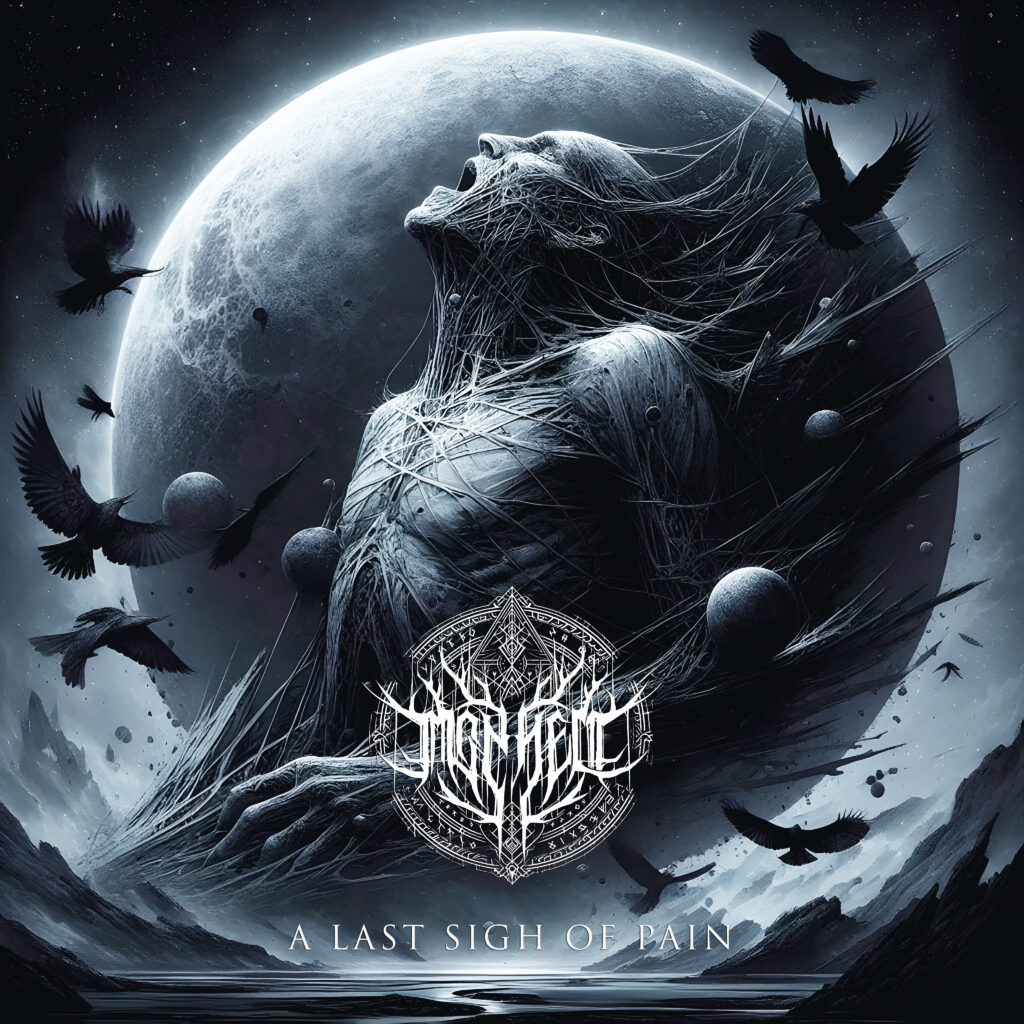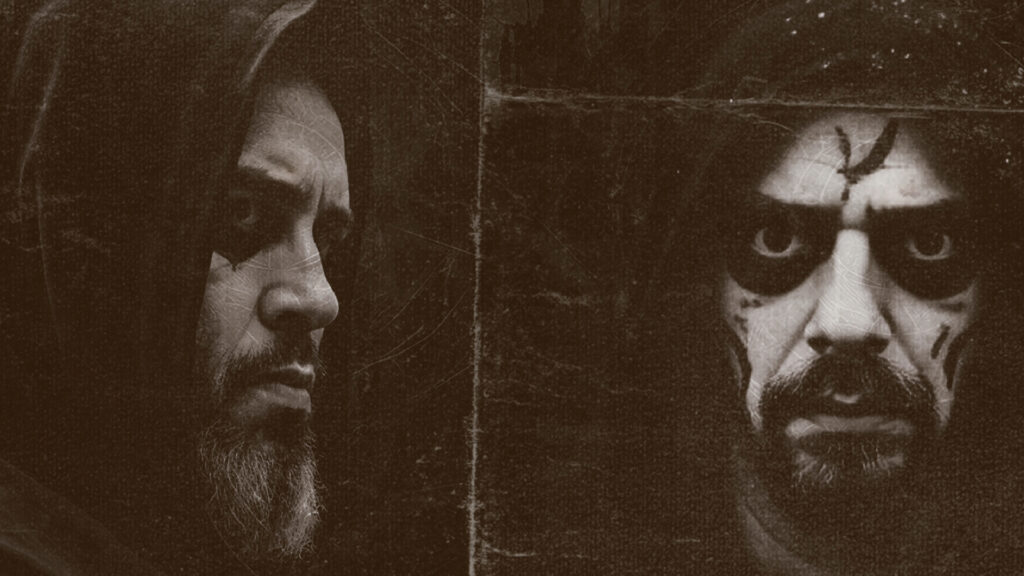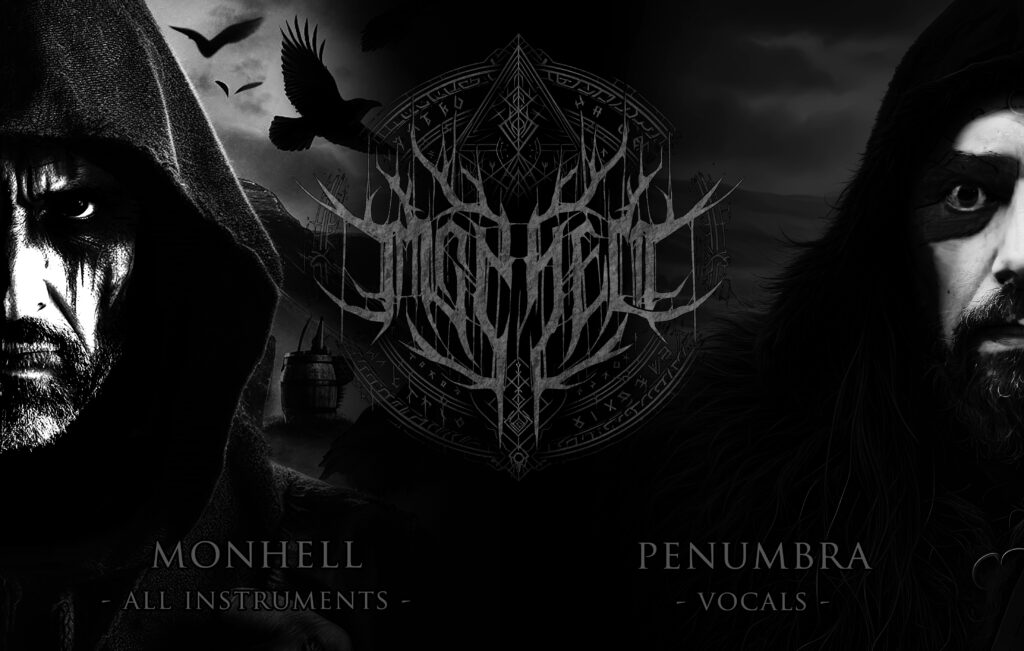
This week, the Spanish one-man Black Metal project Monhell released its debut album through Fetzner Death Records—a release we discussed in detail a few weeks ago. Now that the album is officially out, it’s the perfect time to dig deeper and speak with Monhell about the origins, motivations, and meaning behind this dark and intense project.
1.- Monhell’s debut album has been released via the German label Fetzner Death Records. How did this collaboration come about, and how has the process been so far? Was it a conscious decision to work with a foreign label?
Hello Peter! Yes, the album has been released on April 25 in both digipack and cassette formats. After finishing the mastering of the album, I started sending the master to seven or eight labels to see what kind of response my music would get. One of those labels was Fetzner Death Records. I had already been following their activity for several months and noticed that Alexander places great importance on promoting his bands.
When Alex reached out to me expressing interest in releasing the album, I didn’t hesitate for a second. We first made contact in late December 2024, and over the three to four months leading up to the album’s release, Alexander has been incredibly helpful and supportive, working closely to ensure everything went smoothly. I’m very happy to have signed with Fetzner Death Records.
There’s absolutely no issue with signing with a foreign label. In fact, in the previous bands I’ve played in, it was always international labels that signed us… Undercover Records (german), Adipocere Records (french), Unexploded Records (swedish), and even a japanese label (Battlelord Productions). With the exception of a split of Kult et Morte, along with 3 other bands co-released by 3 spanish labels.
2.- You’re also active in other projects such as Kult et Morte and Berserk. What led you to start Monhell as a separate entity? Was there something you couldn’t fully express in those other bands?
The idea for Monhell originated at home when I started composing riffs that were more melodic and slower compared to the ones found in Kult et Morte and Berserk. These compositions didn’t quite fit the style or sound of those bands, so I felt the need to create a separate entity to give them their own space. Once I began writing, I was surprised by how naturally the songs came together, flowing one after another with remarkable ease. It was an organic process that led to the birth of Monhell.
3.- Do you feel that Monhell gives you more room to explore your creativity and personal vision? In what ways does your approach differ compared to working in a full band setting?
Yes, I feel that Monhell gives me much more room to explore my creativity. In this project, I can create a unique style and specific atmospheres that wouldn’t align with the other bands I play in. When you are part of a full band, you have to conform somewhat to the band’s established style and the musical preferences of your bandmates. Since the second album with Berserk, I haven’t been composing in any of my bands because, as I mentioned, I find it challenging to adapt to a predetermined style.

4.- What do you see as the biggest advantages and challenges of working as a solo artist versus being part of a full band? Are there specific aspects of the writing or recording process you prefer to handle on your own?
Absolutely, there are clear differences between working as a one-man band like Monhell and being part of a full band. As with most things in life, there are pros and cons. For instance, Monhell allows me to move much faster creatively, as I make all the decisions myself. This ensures that everything flows smoothly and progress is never stalled. On the other hand, in a full band setting, decisions are often made collectively, which can sometimes slow things down.
One of the advantages of being in a full band, however, is the camaraderie during rehearsals. Being surrounded by others, sharing jokes, and having fun creates a great atmosphere. Moreover, when playing together, the sound is more powerful, both in rehearsal rooms and during live shows, which enhances the emotional connection with the music. Each setup has its unique charm and challenges, but they both add valuable dimensions to the creative process.
5.- Which artists, movements, or ideologies do you consider to be the main influences behind Monhell? Were there particular records or moments that acted as catalysts for this project?
At this moment, I can’t point to any specific influence behind Monhell. The music I’ve composed for this project is essentially a blend of everything I’ve listened to throughout my life, starting with Rock, moving through more classic Metal, and ultimately reaching Extreme Metal. I’ve always gravitated toward melodic bands, preferring them over the ultra brutal heavier or faster ones. Therefore, I can’t say that a particular artist or record played a special role in shaping Monhell… it’s more of a mix of influences coming together to create something unique.
6.- From the outside, the Spanish metal scene appears to be quite diverse. How do you experience it from within? Is there strong mutual support between bands, labels, and fans? And what is the scene like in your specific region?
Well, I can tell you that we’ve experienced two distinct eras within the Spanish metal scene. When we formed Berserk in 1998, the internet was just starting to take off, and there was much stronger unity among bands—we would send letters to each other, complete with flyers… haha! We had great relationships with many Spanish bands like Nazgul, Crystalmoors, Empty, Grimuack, among others. In our city, Ciudad Real, which has only about 75.000 population, there were around four or five Black Metal bands at that time, and concerts were organized every year.
As I mentioned, after we stopped playing with Berserk, a new phase began where we performed with other projects but didn’t maintain much connection with the scene. However, since creating Kult et Morte and now Monhell, we have reopened ourselves to the extreme metal community.
The Spanish metal scene has always been very strong, with interesting bands and labels supporting it. However, I feel that we lack a standout band that can achieve significant international success and pave the way for others to follow.

7.- The debut album features some lyrics in Spanish. How important is it for you to incorporate your native language into your music? Is it purely about identity, or does it also carry thematic or emotional weight?
The lyrics I’ve included in Spanish are samples and they are inspired by several films that I’ve loved since I was a child, such as “The Seventh Seal” by Ingmar Bergman, which features in the track “The Last Seal”, and “The Name of the Rose”, which is reflected in the song “Shadows of the Abbey”. I’ve always really appreciated when albums include samples, as they bring a more personal touch and help create a specific atmosphere, drawing the listener deeper into the music. For me, it’s not just about identity but also about crafting a thematic and emotional experience.
8.- What does the songwriting process typically look like for Monhell? Do you start from a musical idea or from lyrics and concept? And how long does it usually take for a track to feel ‘complete’?
Typically, the songwriting process starts with composing the music first. I complete the musical structure of the track, and during that process, the concept and lyrics for the song naturally emerge. As for the time it takes to finish a track, there’s… it really varies. Some songs come together more quickly, while others, especially more complex ones, can take up to a couple of months to feel complete.
9.- What can listeners expect thematically or conceptually from the upcoming album? Are there particular emotions, ideas, or narratives that tie the record together?
I haven’t set any specific theme for the second album at the moment. It is still like a blank canvas. I only have a few good riffs that I need to shape and turn into songs. Perhaps the upcoming album will include some faster tracks compared to A Last Sigh of Pain. I’m feeling like adding more energy and intensity this time, hahaha
10.- Are there any plans for live performances with Monhell, or do you see it more as a studio project? If live shows are in the works, how do you plan to bring the music to the stage—and with whom?
As of now, I don’t have any plans to perform live with Monhell. I have too many projects on my mind at the moment, and taking it to the stage would demand a lot of time. However, who knows, if the opportunity arises, I might muster up the courage and hit the road!

11.- Finally, what do you see in Monhell’s future? Are there already plans for new releases, collaborations, or other ambitions you’d like to pursue with this project?
I currently don’t have anything planned for the next Monhell álbum, as I mentioned before. What I can tell you is that I’m involved in a project that excites me greatly. It’s going to be a hit, but for now, I can’t reveal anything. I’ve been quite busy over the past couple of months with the promotion of A Last Sigh of Pain, and now I’m wishing to start composing for the second album.
Peter, thank you very much for the interview, it was really interesting. If anyone wants a physical copy of the Digipack or the cassette, you can get it through our Bandcamp or Fetzner Death Records’ Bandcamp. And if you’d like to listen to the full album, you can do so via this link, which takes you to major platforms like Spotify, YouTube, or Bandcamp. Best regards to everyone!”
Monhell:
Bandcamp
Facebook
Instagram
Fetzner Death Records:
Bandcamp
Instagram
Facebook
Website

